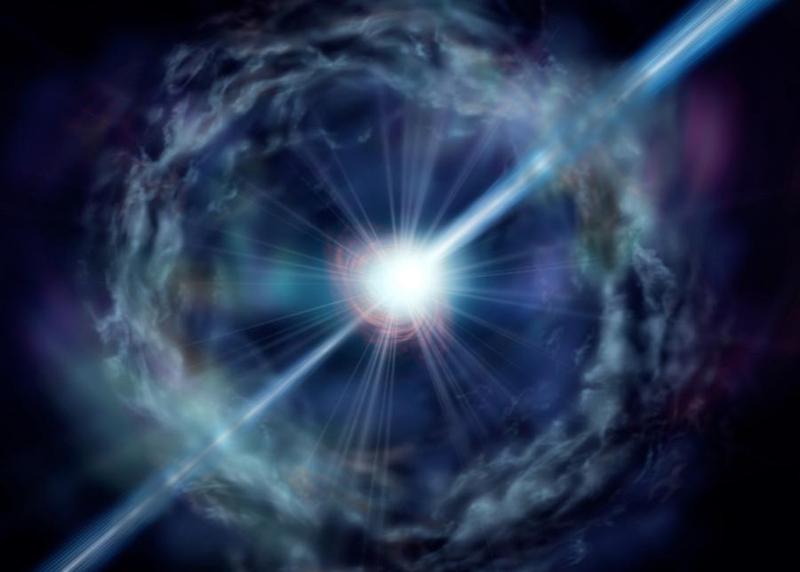Chinese scientists discover highest-energy gamma-ray spectral line

The first GRB was discovered in 1967. In recent years, with the discovery of gravitational waves, GRBs have been under the spotlight in multi-wavelength and multi-messenger time-domain astronomy.
Beijing, China (Xinhua/Indonesia Window) – Chinese scientists have identified a gamma-ray spectral line with energy levels peaking at 37 million electron volts, the highest-energy gamma-ray spectral line ever observed from cosmic celestial bodies. The discovery will significantly advance the understanding of gamma-ray bursts (GRBs).
The study, led by researchers from the Institute of High Energy Physics (IHEP), Chinese Academy of Sciences, was published as a cover story in the journal Science China Physics, Mechanics & Astronomy on Thursday (July 25).
GRBs, usually very short in duration, are the most violent explosive phenomena in the universe after the Big Bang, and they occur during the collapse of massive stars or the merging of binary compact stars, such as neutron stars and black holes.
The first GRB was discovered in 1967. In recent years, with the discovery of gravitational waves, GRBs have been under the spotlight in multi-wavelength and multi-messenger time-domain astronomy.
The brightest GRB ever, coded GRB 221009A, was observed worldwide on Oct. 9, 2022 and was found to result from the collapse of a massive star.
Chinese scientists detected the event through joint observations from the country’s space-based as well as ground-based telescopes. These include China’s first X-ray astronomy satellite, Insight-HXMT; the GECAM-C, an all-sky gamma-ray monitor dedicated to GRBs; and the Large High Altitude Air Shower Observatory, which works in the very high energy gamma-ray band. Together, they achieved an unprecedented measurement of the GRB.
During the study, the research team jointly employed data from the GECAM-C space telescope and the Fermi Gamma-ray space telescope to conduct a detailed spectral analysis and search for the spectral lines of GRB 221009A. They successfully extracted precise and reliable GRB spectra, after comprehensive and challenging analyses of the instrumental effects and background issues caused by the extreme brightness of this burst.
The research team discovered a spectral line in the energy spectrum of GRB 221009A featuring a power-law decay pattern for both the line energy and flux, and an almost constant and relatively narrow line width, as the burst goes on.
In particular, the researchers found that during the main burst phase of the GRB, the energy of this spectral line reached up to 37 million electron volts, setting a new record for the gamma-ray line observed in the universe.
Xiong Shaolin, the leader of the research team, who is also the principal investigator of GECAM series space telescopes at IHEP, noted that these findings hold great significance for studying the physics and mechanisms behind GRBs and relativistic jets launched by GRBs.
To unveil the mysteries of the extreme universe, China has launched a series of satellites for GRB observations, including Insight-HXMT, GECAM series, the Einstein Probe and the SVOM.
Reporting by Indonesia Window

.jpg)








